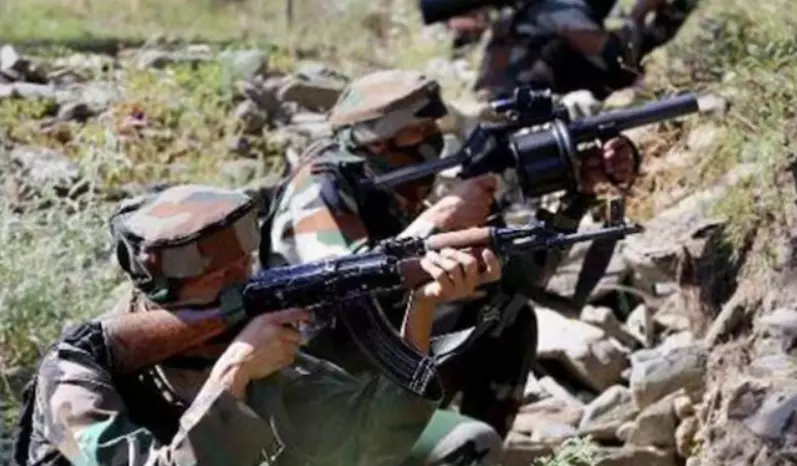AA Edit | Let’s Focus on Deterrence, Diplomacy as Truce Begins
India has followed up the formidable message delivered in destroying nine nurseries of terror in Pakistan and PoK with strategic moves like revisiting the Indus Waters Treaty

The sigh of relief after the declaration of truce, however imperfect it seemed with Pakistan’s early violations, could be heard loudest in the border areas and in Jammu & Kashmir where residents went through the infernal experience of a war-like scenario for four days from May 7.
Regardless of the circumstances in which a ceasefire came to be agreed upon with the Pakistan army calling the Indian DGMO and seeking cessation of hostilities and the US President Donald Trump jumping the gun to claim the credit of being its progenitor, the truce is to be wholeheartedly welcomed.
The futility of hostilities even in drones, missiles and border guns warfare in the most modern era can never be stressed enough. The action and counteraction may have left some space even for Pakistan, notorious sponsor of terror as a weapon of statecraft, to believe it had got the better of the exchanges.
While it is very easy to start a war, even if legitimised as a counter to Pakistan’s action in hatching a terror attack on innocent tourists, it is never easy to stop one. And credit must go to all the international powers like the US, Saudi Arabia and the Gulf states that kept reminding India and Pakistan of dialogue and diplomacy as the way forward after stopping acts of war at once.
India, in undertaking a counter strike for the Pulwama massacre in which the victims were identified by religion, can be satisfied but not smug after delivering the strongest ever message to Pakistan on sponsored terror since a string of events began with the attack on Parliament in 2001 and the 26/11 strike on Mumbai in 2008.
Any blackmailing threat of a nuclear war can be issued only by irrational leaders. It is to be assumed that Pakistan, perhaps the worst off for damage from strikes by projectiles, needed the crutch of a super power mediation to be able to sign off on hostilities, as it has done historically since 1965, or surrendered as it did in 1971.
It is often said that while all countries have an army, only in Pakistan does the army have a country. It was incumbent then on the part of the US to talk to the religiously indoctrinated general through its secretary of state to abide by a truce since the civilian government in Islamabad has very little credibility and, in fact, lacks legitimacy too.
India has followed up the formidable message delivered in destroying nine nurseries of terror in Pakistan and PoK with strategic moves like revisiting the Indus Waters Treaty. Also, the message is being delivered now that any repeat of incidents of sponsored terror would be construed an act of war and suitably responded to.
India has the wherewithal to absorb any losses from the four days of mayhem in the air and on the ground, but the hell that people in border states went through is a signal that a lot more must be done to secure their lives by constant vigil, which is the price to be paid for preparing against the perfidy of neighbours.
What it must do from here is not let its guard down in J&K after serious lapses in security had led to the Pahalgam incident. And to recognise the solidarity that most J&K people displayed, statehood must be granted as recognition of their place in the mainstream besides the empathy that they deserve as they strive to make their lives better.
The levels of deterrence have been moved up as evident from India’s ability to come through with lesser damage from the drone-missile strikes, but the loss of civilian lives from indiscriminate border shelling will keep reminding us of what the nation must deal with when it comes to Pakistan. For now, truce brings breathing space to try dialogue and diplomacy to try and shape a better future.
